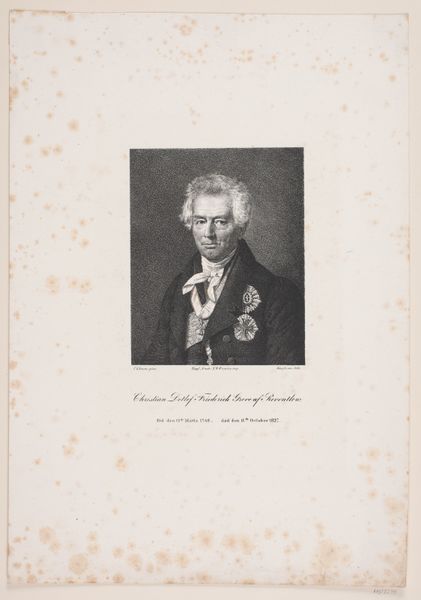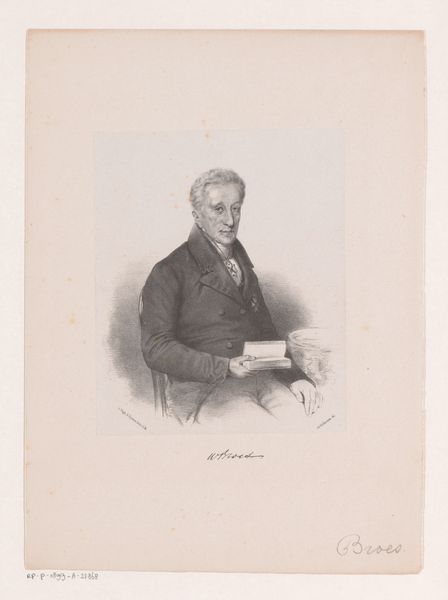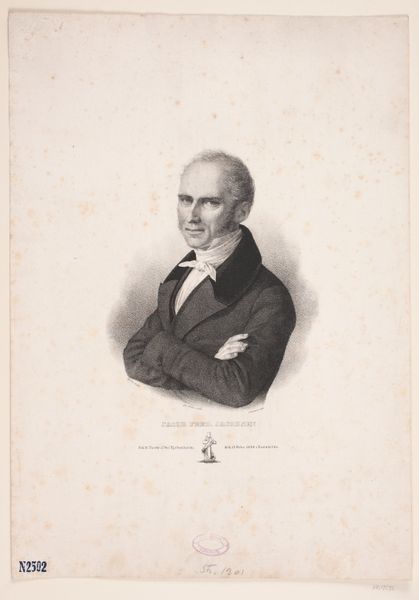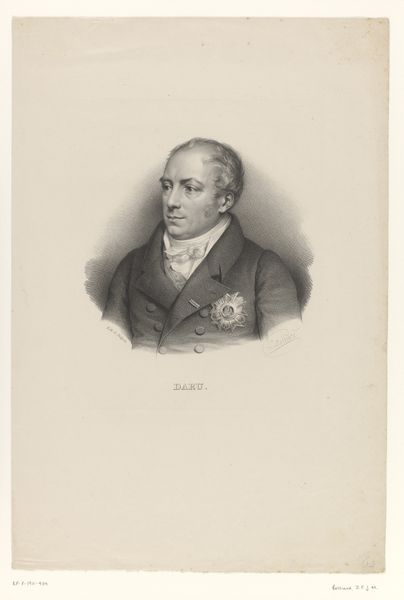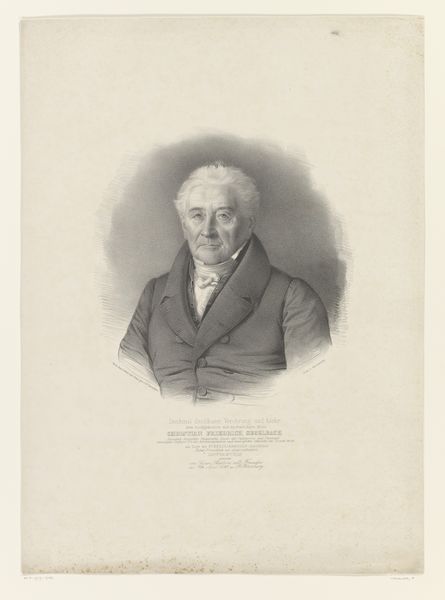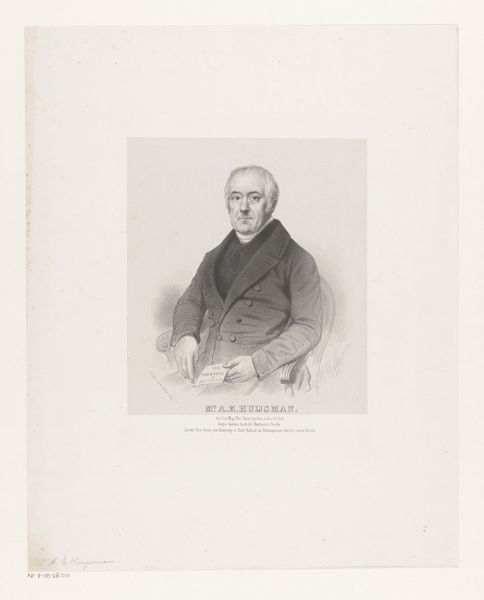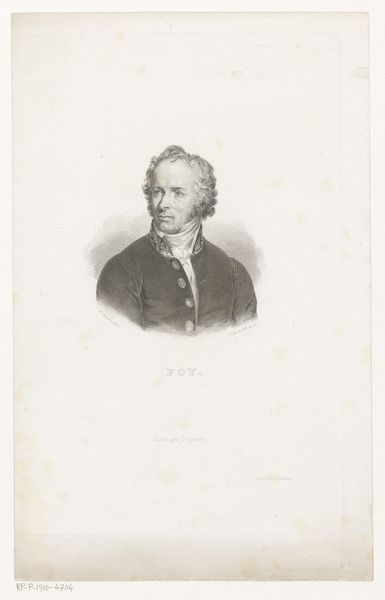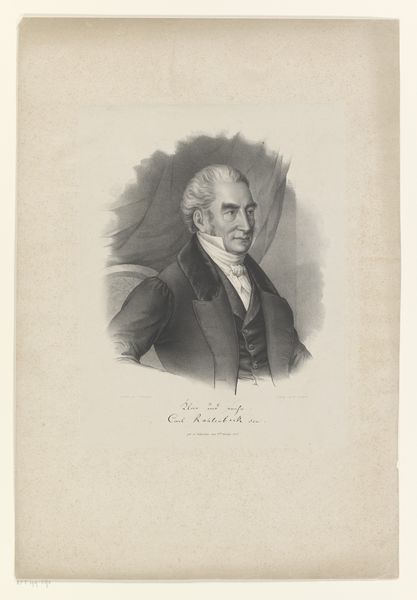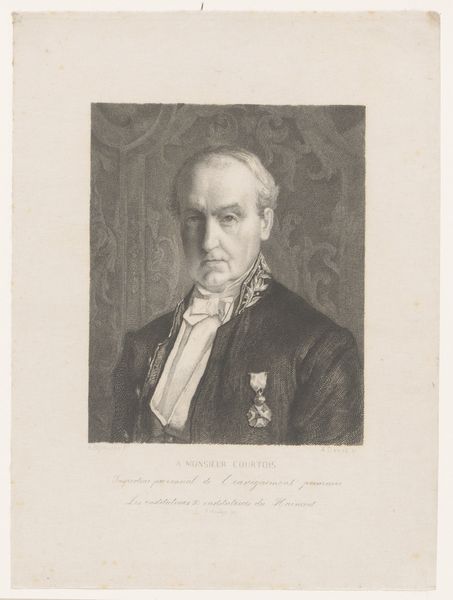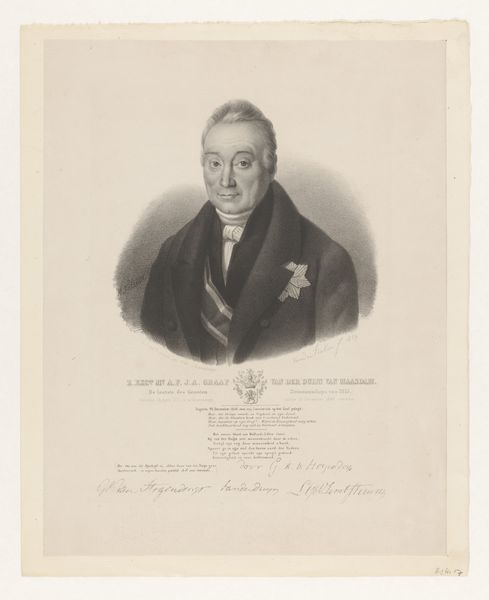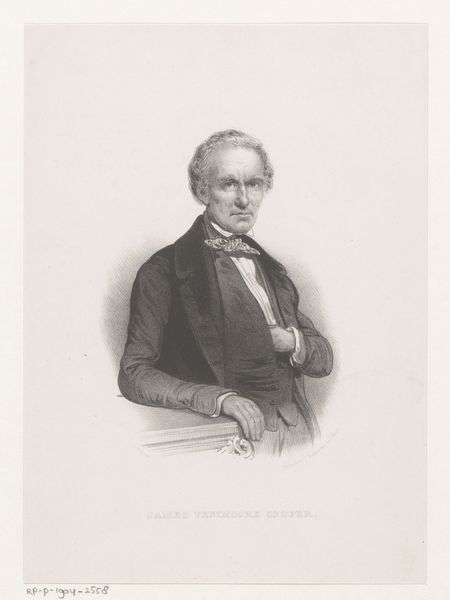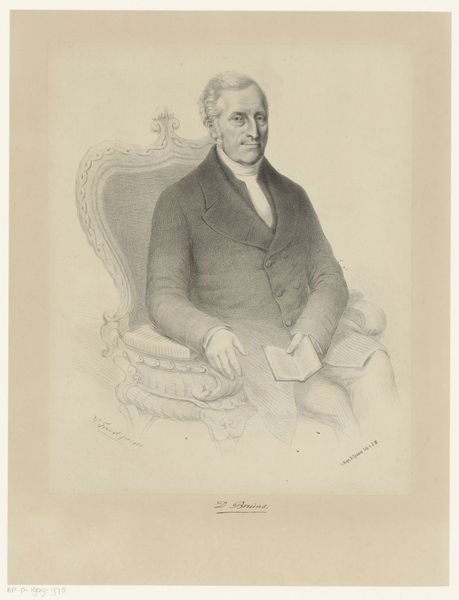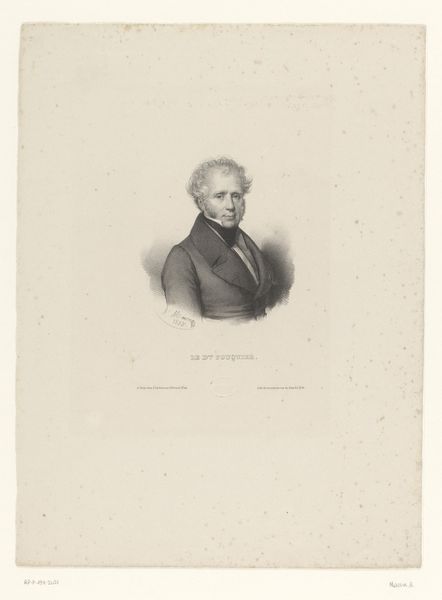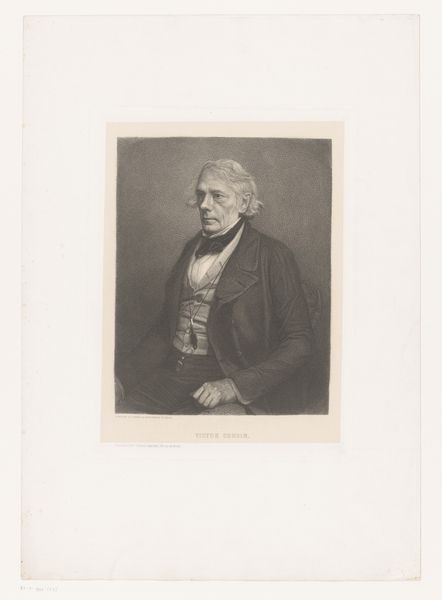
drawing, pencil
#
portrait
#
pencil drawn
#
drawing
#
light pencil work
#
pencil sketch
#
old engraving style
#
personal sketchbook
#
portrait reference
#
pencil drawing
#
romanticism
#
pencil
#
sketchbook drawing
#
portrait drawing
#
pencil work
#
academic-art
#
realism
Dimensions: height 571 mm, width 435 mm
Copyright: Rijks Museum: Open Domain
This portrait of Johann David Wilhelm Sachse was made sometime between 1820 and 1830 by C. Schultz. It's an intriguing example of lithography, a printmaking technique that democratized image production in the 19th century. Unlike engraving or etching, which require laborious carving into metal, lithography uses a greasy crayon to draw directly onto a stone. The stone is then treated with chemicals so that ink adheres only to the drawn areas. This allows for relatively quick and inexpensive reproduction. Looking closely, you can see the soft, almost chalky quality of the lines, a direct result of the crayon on stone. This particular print likely involved skilled artisans, both in the drawing and the printing processes. While seemingly straightforward, such prints helped to circulate images widely, contributing to new forms of visual culture and consumerism. Lithography facilitated the spread of information and entertainment, impacting labor practices and artistic expression alike. It is a reminder that the materials and processes used to create art are never neutral.
Comments
No comments
Be the first to comment and join the conversation on the ultimate creative platform.
